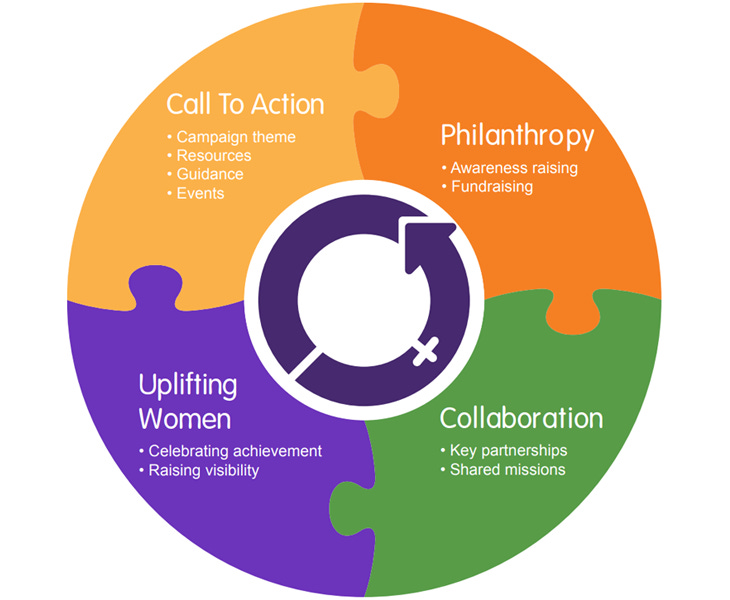By Pamela Hilliard Owens
(To view previous articles, please visit our website.)
Every year on March 8, we celebrate International Women’s Day. You can find out about the many programs and initiatives scheduled around the world here.
The theme for this year is “Break The Bias.” It is true that whether deliberate or unconscious, bias makes it difficult for women to move ahead. Knowing that bias exists isn't enough. Action is needed to level the playing field.
According to the #IWD2022 website:
Imagine a gender-equal world. A world free of bias, stereotypes, and discrimination. A world that's diverse, equitable, and inclusive. A world where difference is valued and celebrated. Together we can forge women's equality. Collectively we can all #BreakTheBias.
Throughout history, including currently, women have faced bias and discrimination every time they dared to venture out from the “approved and traditional” roles of housewife and mother into any other role or vocation.
Shirley A. Chisholm
The Honorable Shirley A. Chisholm (1924-2005), was the second African American in the New York State Legislature, the first African American woman in the United States Congress, and the first woman and the first African American to seek the nomination for president of the United States from one of the two major parties (the Democratic nomination in 1972). Not only was she discriminated against during her campaign by the Democratic Party, but she also faced push-back from the predominantly male Congressional Black Caucus. There are many quotes attributed to Congresswoman Chisholm, but two quotes in particular were related to how she felt about the bias against women:
Of my two handicaps, being female put many more obstacles in my path than being black.
The emotional, sexual, and psychological stereotyping of females begins when the doctor says: It's a girl.
Women’s Suffrage and The Fight for Equality
Although Black men (in theory) were finally given the right to vote in 1870 by the ratification of the 15th Amendment, (white) women (in theory) in America weren’t granted the right to vote until the passage of the 19th Amendment in 1920. Native American women could not vote until 1924, and most Asian women could not legally vote until the 1950s.
The women’s suffrage movement of the late 19th and early 20th centuries was very effective in their lobbying efforts and activism. They marched in public, wearing white, when women weren’t even supposed to gather in large groups in public.
However, the suffrage movement also actively discriminated against women of color. If Black women were allowed to participate in marches at all, they were made to march in the back of the parade.
Many colleges and universities discriminated against women or refused to enroll women at all, especially in graduate programs and in medical and law schools until about the 1970s.
It also wasn’t until the 1970s that laws were repealed that prohibited women from buying homes, cars, or property obtain other kinds of loans without a man’s (usually their husbands’ or fathers’) permission and/or signature.
The gender pay gap is still prevalent in the United States, with women generally earning only 84% of what men earn.
The official recognition of the 28th Amendment to the United States Constitution, the “Equal Rights Amendment,” has still not been completed, even though the amendment long ago met the ratification requirements.
The Lilly Ledbetter Fair Pay Act was signed by former President Barack Obama in 2009, but it is still in trouble for reauthorization by right-wing legislators and many business people.
In a future article, I will tell the stories of gender discrimination that I have experienced in my lifetime.
But today is the day to honor and celebrate the women visionaries, innovators, entrepreneurs, mentors & advocates across the world driving new ways of thinking & doing. March 8 has been the agreed-upon date for International Women’s Day since 1914.
International Women's Day is not country, group, nor organization specific. The day belongs to all groups collectively everywhere.
Have you personally experienced or witnessed bias against women in your personal or professional lives. How did you handle the incident(s)? Let us know in the comments.



